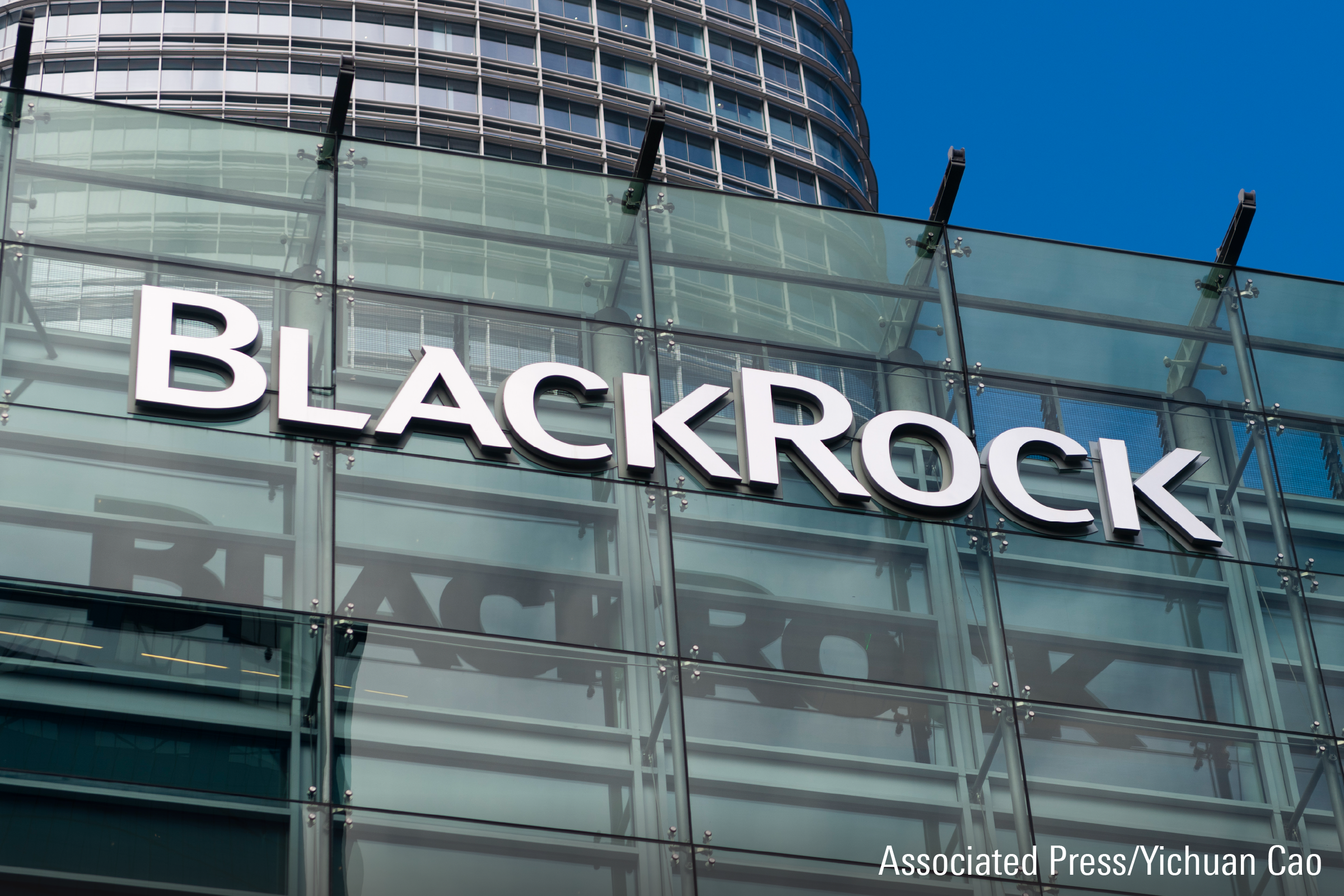Is BlackRock Stock a Buy or Sell?
We cut our fair value estimate for the stock, but it remains a top pick today, says Morningstar’s analyst.

Wide-moat BlackRock’s BLK third-quarter results were worse than we expected, owing to weaker flows and larger market and foreign currency exchange losses than we had forecast. Given this—as well as equity and credit market returns that are expected to be lower in the near term—we’ve lowered our fair value estimate to $760 per share from $850. Even so, BlackRock continues to be our top pick among the traditional U.S.-based asset managers we cover, with the shares trading well below our fair value estimate.
BlackRock closed September with $7.961 trillion in managed assets, down 20.5% year to date. Net inflows of $247.6 billion since the start of 2022 have been impressive, considering the disruption in the equity and credit markets, and reflected an annualized organic growth rate of 3.3% for assets under management. While this was at the lower end of our long-term target of 3%-5% annual growth, the company still has 55% of the $150 billion AIG Corebridge assignment left to be funded in the near term, so we expect BlackRock to post annual organic AUM growth closer to 4% for 2022.
We forecast average annual organic AUM growth of 4.1% during 2022-26, with managed assets overall not recovering to 2021 levels until near the end of our five-year outlook. With fee compression expected to be less of an issue for BlackRock than most traditional asset managers, this should translate into a 1.1% compound annual growth rate for revenue during 2022-26. We project relative stability in operating profitability the next five years, owing primarily to the scalability of the passively managed exchange-traded fund operations. For 2022-26, we envision the company generating adjusted operating margins of 42%-44%.
For much of the past decade, we have bemoaned the fortunes of many of the traditional U.S.-based asset managers, noting that their top and bottom lines be pressured by significant secular headwinds (aging baby boomers and the growth of passive investing) and cyclical headwinds (primarily from a waning bull market for equities). We thought global regulatory changes aimed at increasing transparency around fees and performance, as well as pushing for a greater degree of fiduciary responsibility in retail-advised relationships, would raise the hurdles for the more traditional U.S.-based asset managers we cover.
With the gatekeepers for retail intermediary platforms also becoming much more focused on fees and performance when deciding what products to place on their platforms, the industry has been ripe for fee and margin compression; active asset managers have been expected to not only narrow the spread between the management fees charged for their funds and the fees attached to index-based products but spend more heavily to improve investment performance and enhance product distribution.
What Sets BlackRock Apart
Unlike most of its peers, BlackRock has been able to offset many of the secular headwinds facing the traditional asset managers with a few tailwinds of its own. The biggest differentiators for BlackRock, in our view, are scale (especially in passive investing), the ability to offer both passive and active products, a greater focus on institutional investors, strong brands, and more reasonable fees.
BlackRock is at its core a passive investment shop. Through its iShares ETF platform and institutional index fund offerings, the company sources two thirds of its managed assets (and close to half of annual revenue) from passive products. In an environment where retail-advised and institutional clients are expected to seek out providers of passive products, as well as active asset managers that have greater scale, established brands, solid long-term performance, and reasonable fees, we believe BlackRock is well positioned. Product diversity and a heavier concentration in the institutional channel have traditionally provided BlackRock with a much more stable set of assets than its peers, which has also led to more-stable top- and bottom-line growth.
And unlike most of its competitors, BlackRock has been generating positive organic AUM growth with both its active and passive operations. Its well-diversified product mix has generally made it agnostic to shifts among asset classes and investment strategies, limiting the impact that market swings or withdrawals from individual asset classes or investment styles can have on AUM. While this year has been different, as both the equity and credit markets have sold off in response to rising interest rates and concerns about a recession in the near term, BlackRock has generated positive flows for its long-term AUM in all three quarters.
BlackRock is the largest asset manager in the world, and its product mix is fairly diverse. Passive strategies make up around two thirds of BlackRock’s long-term AUM, with the iShares ETF platform maintaining a leading market share both domestically and globally.
BlackRock remains our top pick among the stand-alone publicly traded traditional U.S.-based asset managers we cover. Despite the headwinds from the recent downturn in the equity and credit markets, we believe that over the next five years, an ever-expanding ETF market, the company’s improved active fund operations, the continued adoption of ESG analytics and investing, the company’s expansion of its multi-asset and alternatives platforms, and its ongoing technology efforts will drive growth for the asset manager.
The market tends to reward above-average organic AUM growth and operating profits in the U.S.-based asset managers, which explains why BlackRock is currently trading at a meaningful premium to the group of nine U.S.-based traditional asset managers we cover. However, the shares are still meaningfully undervalued relative to our fair value estimate.
Key Morningstar Metrics for BlackRock
- Fair Value Estimate: $760
- Star Rating: 4 Stars
- Economic Moat Rating: Wide
- Moat Trend Rating: Stable
Remove the guesswork and make informed decisions faster. Morningstar Investor’s stock ratings, analysis, and insights are all backed by our transparent, meticulous methodology. Learn more and start a seven-day free trial today.
The author or authors do not own shares in any securities mentioned in this article. Find out about Morningstar’s editorial policies.


/cloudfront-us-east-1.images.arcpublishing.com/morningstar/TP6GAISC4JE65KVOI3YEE34HGU.jpg)
/cloudfront-us-east-1.images.arcpublishing.com/morningstar/RFJBWBYYTARXBNOTU6VL4VSE4Q.png)
/cloudfront-us-east-1.images.arcpublishing.com/morningstar/YQGRDUDPP5HGHPGKP7VCZ7EQ4E.jpg)